
Serenity in Sero Blanco: Exploring Aruba's Hidden Gem
Sero Blanco, a quaint neighborhood in the heart of Aruba, offers a serene escape from the bustling tourist spots. Nestled in the capital city of Oranjestad, Sero Blanco is a perfect blend of local charm and modern conveniences. This area is known for its picturesque views of the island's landscape and its close proximity to cultural landmarks. Visitors to Sero Blanco can explore the charming streets lined with colorful houses and local shops. The neighborhood provides a glimpse into the everyday life of Arubans, with friendly locals and a relaxed atmosphere. It's a great place to enjoy authentic Aruban cuisine at family-owned restaurants or to pick up unique souvenirs from local artisans. Sero Blanco is also a gateway to some of Aruba's best attractions. You can easily reach the beautiful Eagle Beach, known for its pristine sands and clear waters, or the Arikok National Park, where you can hike and discover the island's natural beauty. The neighborhood's central location makes it an ideal base for exploring all that Aruba has to offer.
Local tips in Sero Blanco
- Visit the neighborhood's local eateries to taste authentic Aruban dishes.
- Explore the streets on foot to fully appreciate the local architecture and atmosphere.
- Use Sero Blanco as a base to visit nearby attractions like Eagle Beach and Arikok National Park.
- Engage with the friendly locals to learn more about Aruban culture and traditions.
- Shop at local markets for unique souvenirs and handmade crafts.
Serenity in Sero Blanco: Exploring Aruba's Hidden Gem
Sero Blanco, a quaint neighborhood in the heart of Aruba, offers a serene escape from the bustling tourist spots. Nestled in the capital city of Oranjestad, Sero Blanco is a perfect blend of local charm and modern conveniences. This area is known for its picturesque views of the island's landscape and its close proximity to cultural landmarks. Visitors to Sero Blanco can explore the charming streets lined with colorful houses and local shops. The neighborhood provides a glimpse into the everyday life of Arubans, with friendly locals and a relaxed atmosphere. It's a great place to enjoy authentic Aruban cuisine at family-owned restaurants or to pick up unique souvenirs from local artisans. Sero Blanco is also a gateway to some of Aruba's best attractions. You can easily reach the beautiful Eagle Beach, known for its pristine sands and clear waters, or the Arikok National Park, where you can hike and discover the island's natural beauty. The neighborhood's central location makes it an ideal base for exploring all that Aruba has to offer.
When is the best time to go to Sero Blanco?
Iconic landmarks you can’t miss
California Lighthouse
Experience the breathtaking views and rich history at the California Lighthouse, a must-see landmark in Aruba's stunning landscape.
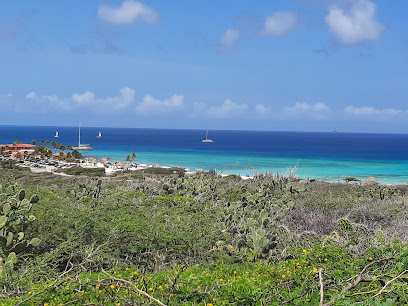
MooMba Beach Bar & Restaurant
Experience the vibrant atmosphere and delicious cuisine at MooMba Beach Bar & Restaurant, the perfect beachside getaway in Aruba.
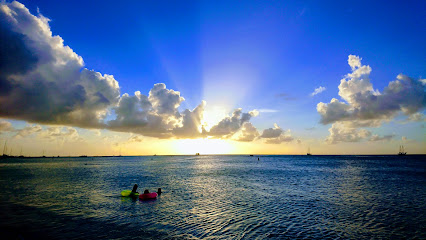
Casibari Rock Formations
Unveil the beauty of Aruba at Casibari Rock Formations, where nature and adventure come together for an unforgettable experience.
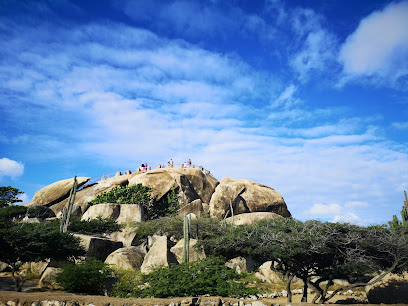
Arikok National Park
Explore Arikok National Park – Aruba's stunning natural reserve with unique landscapes, rich biodiversity, and outdoor adventures waiting to be discovered.
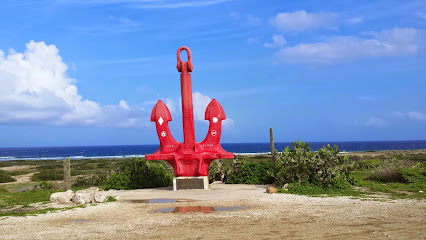
Queen Beatrix International Airport
Discover the vibrant gateway to Aruba at Queen Beatrix International Airport, where your tropical adventure begins amidst modern amenities and local charm.
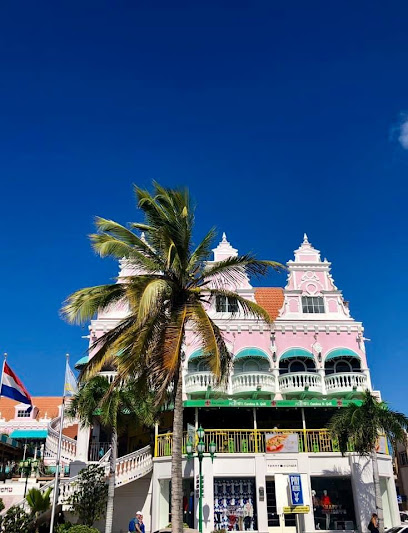
Butterfly Farm
Discover a vibrant world of butterflies at The Butterfly Farm in Noord, Aruba - a serene escape into nature's beauty and a lesson in conservation.
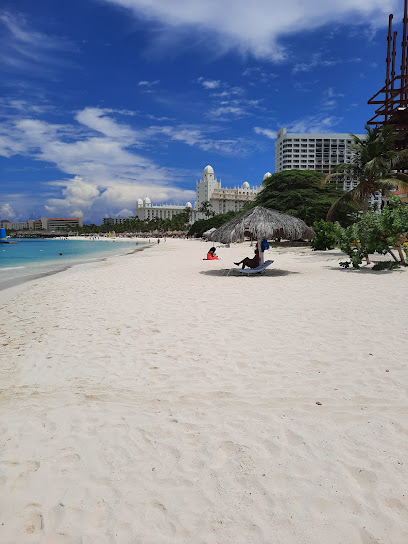
Alto Vista Chapel
Discover the tranquil beauty of Alto Vista Chapel in Aruba, a serene retreat with stunning views and a rich spiritual heritage.

Passions On The Beach
Experience breathtaking views and exquisite seafood at Passions On The Beach, a premier dining destination in Aruba.
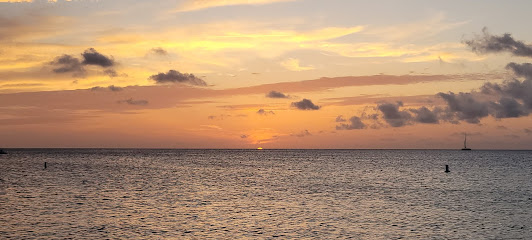
Faro Blanco Restaurant
Indulge in exquisite Italian cuisine with stunning views at Faro Blanco Restaurant in Aruba, near the famous California Lighthouse.
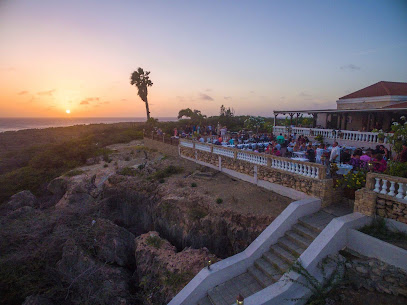
Bushiribana Ruins
Explore Aruba's historic Bushiribana Gold Smelter Ruins: a glimpse into the island's gold rush past with stunning Caribbean views.
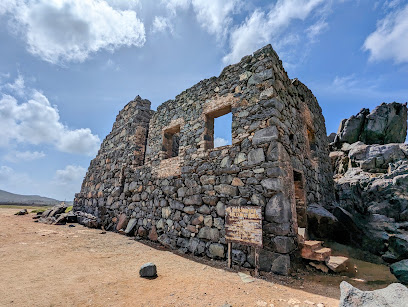
Royal Plaza Mall
Discover the vibrant Royal Plaza Mall in Oranjestad, Aruba, where shopping meets Caribbean charm and local culture in a bustling atmosphere.
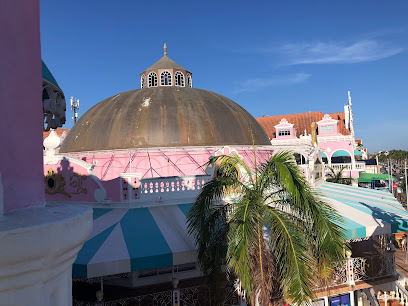
Bushiribana Gold Smelter
Discover the rich history of Aruba at the Bushiribana Gold Smelter, a captivating attraction showcasing the island's gold mining heritage.
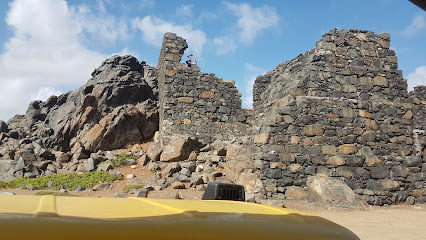
The Old Cunucu House Aruba
Experience authentic Caribbean cuisine at The Old Cunucu House, a charming restaurant in Aruba offering a taste of local culture and flavors.
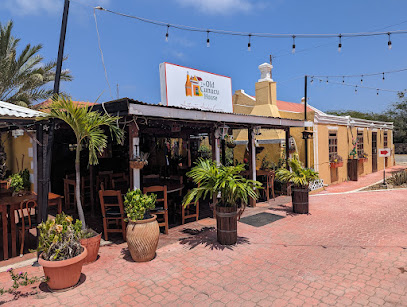
Flamingo Beach
An unforgettable experience on a private island, where you can mingle with flamingos in a stunning Caribbean setting.
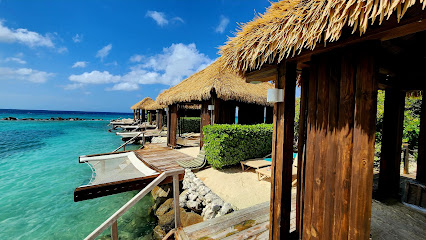
Amsterdam Manor Beach Resort Aruba
Experience Dutch charm and Caribbean hospitality at Amsterdam Manor Beach Resort, steps away from Aruba's stunning Eagle Beach.

Unmissable attractions to see
Natural Bridge Aruba
Discover the awe-inspiring Natural Bridge in Aruba, a breathtaking geological marvel surrounded by stunning coastal views and rich history.
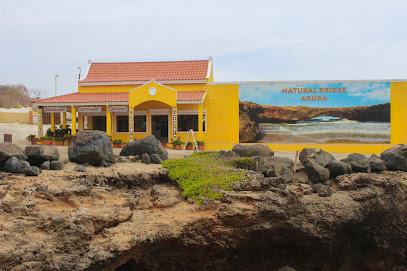
Eagle Beach
Experience the beauty of Eagle Beach, Aruba: soft white sands, turquoise waters, and breathtaking sunsets await in this Caribbean paradise.
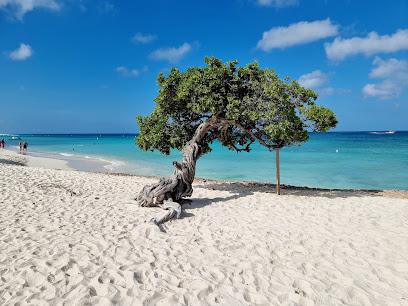
Casibari Rock Formations
Explore Aruba's mysterious Casibari Rock Formations: ancient boulders, panoramic views, and a glimpse into the island's past.
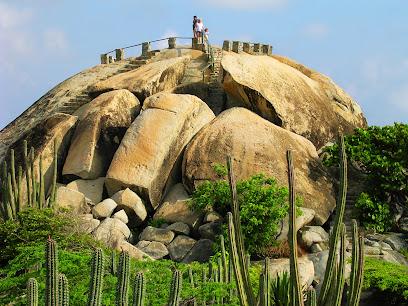
Arikok National Park
Explore Aruba's wild side: dramatic landscapes, ancient caves, and unique wildlife await in Arikok National Park.
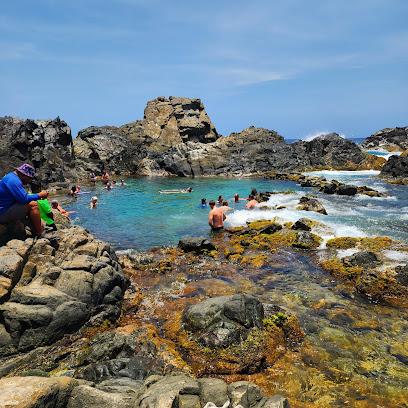
De Palm Tours Aruba
Explore Aruba's stunning landscapes and rich culture with De Palm Tours, your ultimate guide to unforgettable adventures on this Caribbean paradise.
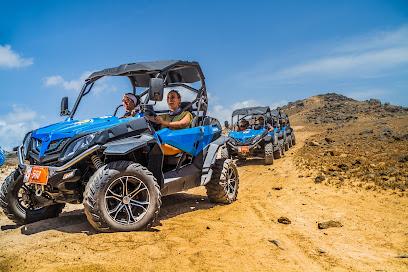
De Palm Island
Experience Aruba's premier all-inclusive destination with snorkeling, water parks, flamingoes, and unlimited fun for the whole family.
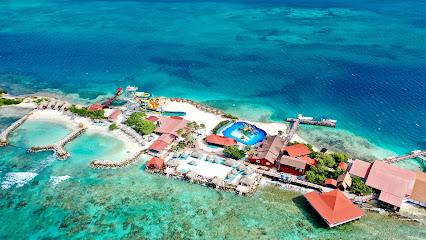
Aruba Aloe Factory Museum and Store
Explore Aruba's Aloe heritage at the Factory Museum and Store – a unique blend of history, culture, and natural wellness.
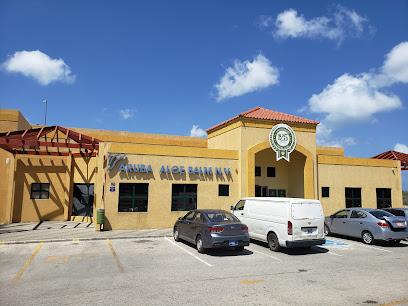
The Butterfly Farm Aruba
Discover a world of fluttering beauty at Aruba's Butterfly Farm, an enchanting escape into nature's delicate wonders.
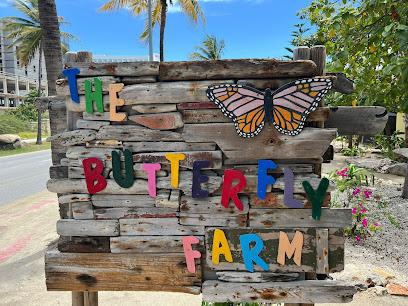
Alto Vista Chapel
Discover the serene beauty and cultural significance of Alto Vista Chapel, a must-visit destination in Aruba offering breathtaking views and spiritual reflection.
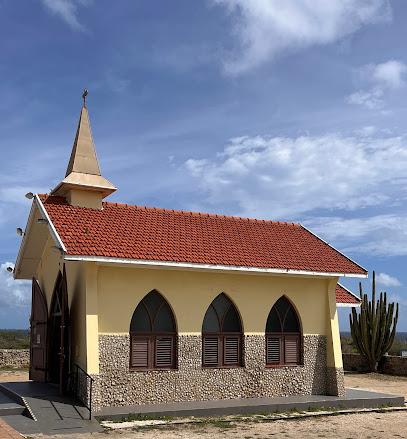
Baby Beach
Discover Aruba's family-friendly paradise: Calm waters, vibrant marine life, and serene relaxation await at Baby Beach in San Nicolas.
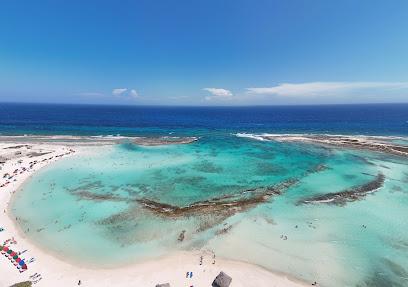
Conchi Natural Pool
Experience the beauty of Conchi Natural Pool in Aruba, a stunning natural oasis perfect for swimming and relaxation amidst scenic landscapes.
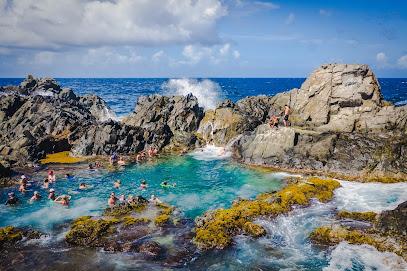
Philip's Animal Garden
Interact with exotic animals at Aruba's premier rescue sanctuary. A unique and educational experience for all ages.
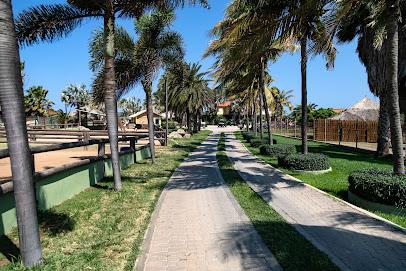
Donkey Sanctuary Aruba
Experience the charm of Donkey Sanctuary Aruba, a wildlife refuge where you can interact with friendly donkeys while learning about their care and significance.
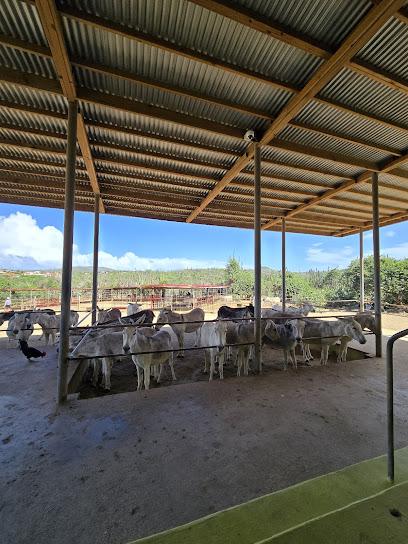
Arashi Beach
Discover Arashi Beach: Aruba's serene escape with calm waters, pristine sands, and vibrant snorkeling, perfect for families and nature lovers.
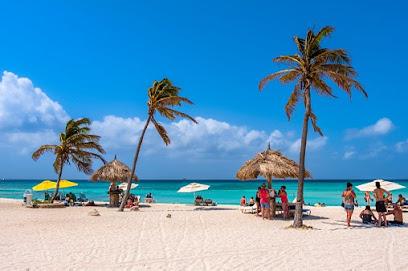
Jolly Pirates Sailing Cruises & Snorkeling
Set sail for adventure with Jolly Pirates: Snorkeling tours and sunset cruises in Aruba's mesmerizing waters. Experience the pirate life!
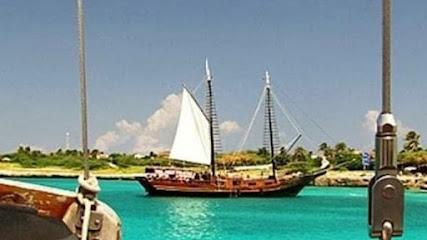
Essential places to dine
Zeerover
Discover Zeerover in Savaneta: A seafood lover's dream with fresh catches and stunning ocean views in Aruba.
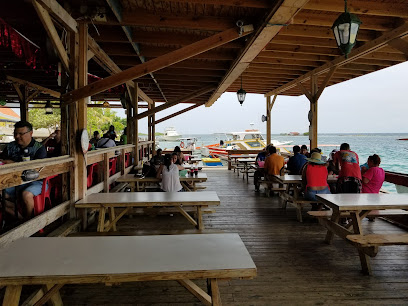
Flying Fishbone
Discover Flying Fishbone: A premier seafood restaurant in Savaneta offering fresh dishes with stunning ocean views in Aruba.
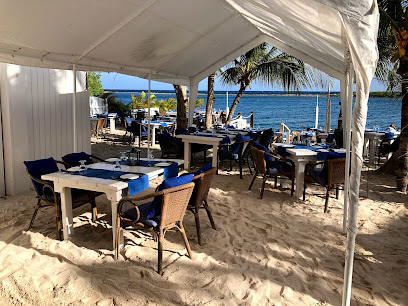
Red Fish Aruba
Experience fresh seafood delights in a vibrant Caribbean setting at Red Fish Aruba—where every meal is a celebration of flavor.
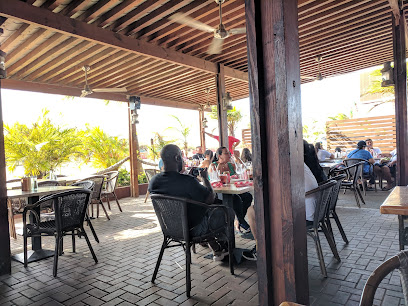
Madame Janette
Experience exquisite Caribbean cuisine at Madame Janette, where fine dining meets the vibrant flavors of Aruba.
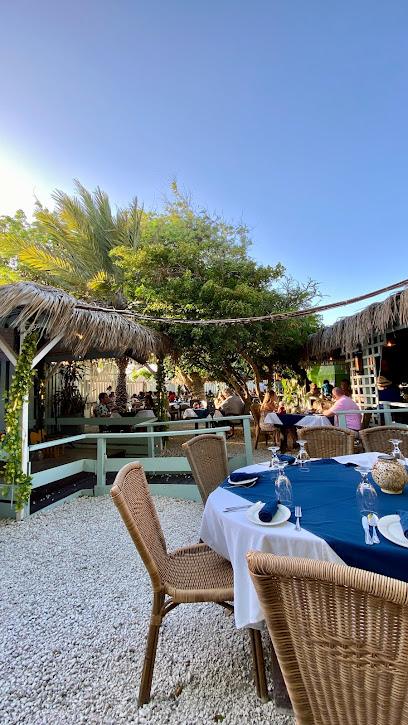
Faro Blanco Restaurant
Experience exquisite Italian cuisine with breathtaking views at Faro Blanco Restaurant in Aruba.
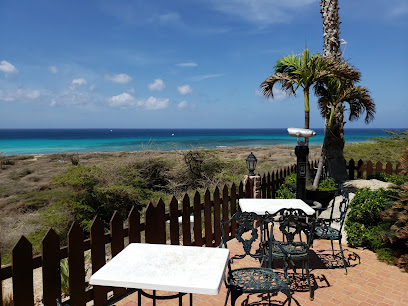
West Deck
Savor the vibrant tastes of Aruba at West Deck - where local flavors meet breathtaking views for an unforgettable dining experience.
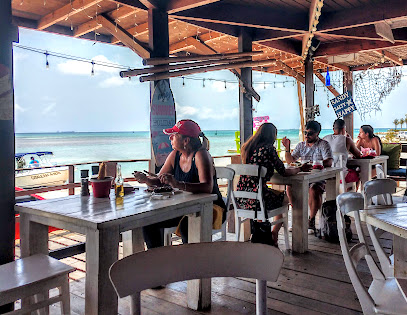
Salt and Pepper Tapas Bar & Restaurant
Discover the delightful culinary experience at Salt and Pepper Tapas Bar & Restaurant in Aruba—where flavor meets tradition in every dish.
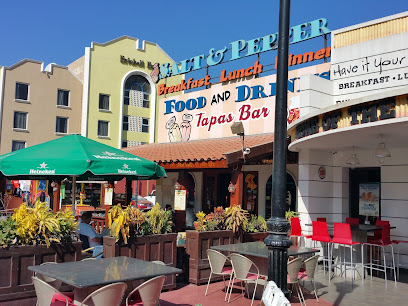
Barefoot Restaurant
Experience exquisite dining at Barefoot Restaurant in Aruba, where fresh seafood meets stunning ocean views for an unforgettable meal.
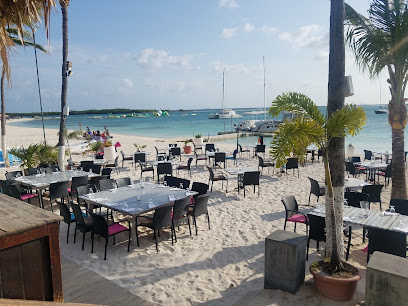
Lola Taqueria
Discover authentic Mexican cuisine at Lola Taqueria in Noord, Aruba - where every bite is a fiesta!
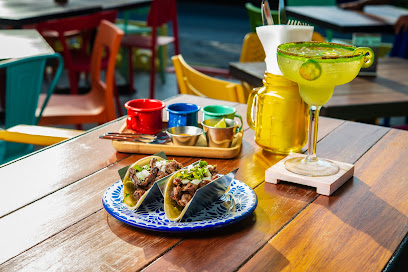
Yemanja Woodfired Grill
Experience exceptional Caribbean cuisine at Yemanja Woodfired Grill in Oranjestad – where fresh ingredients meet unique wood-fired flavors.
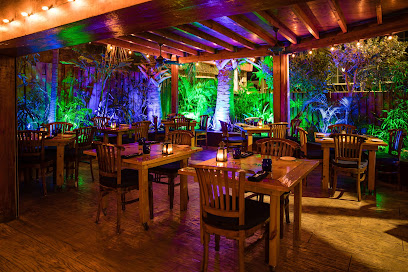
Matthew's beachside restaurant
Experience exquisite dining at Matthew's Beachside Restaurant in Aruba - where fresh seafood meets stunning ocean views.
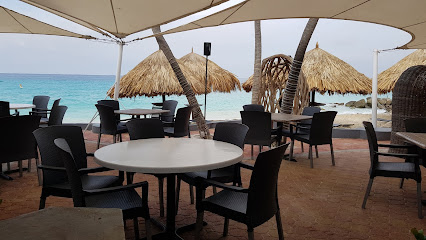
Pika's Corner Aruban Cuisine
Discover the authentic flavors of Aruba at Pika's Corner Aruban Cuisine - where every dish tells a story.
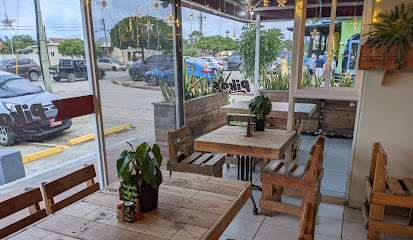
Quinta del Carmen
Discover the flavors of Aruba at Quinta del Carmen—where exquisite tapas meet warm Caribbean hospitality in an enchanting setting.
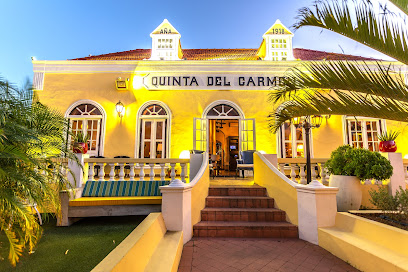
Papiamento Restaurant
Experience exquisite Caribbean dining at Papiamento Restaurant in Noord, Aruba - where every meal is a celebration of flavor and culture.
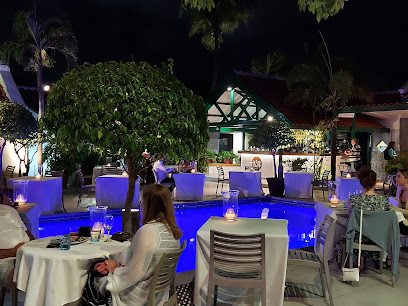
The Old Cunucu House Aruba
Experience authentic Caribbean cuisine at The Old Cunucu House Aruba, where tradition meets flavor in a charming setting.
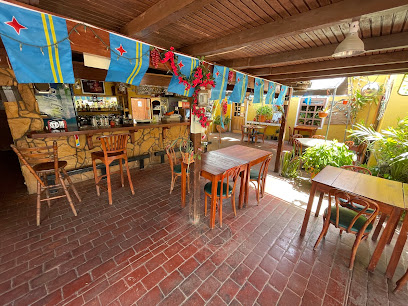
Markets, malls and hidden boutiques
Paseo Herencia Mall
Discover the ultimate shopping and entertainment experience at Paseo Herencia Mall in Aruba, where vibrant culture meets delicious cuisine.
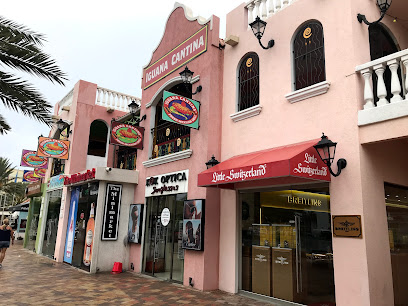
Royal Plaza Mall
Explore the Royal Plaza Mall in Oranjestad, Aruba - a vibrant shopping destination featuring local and international brands, dining, and a lively atmosphere.
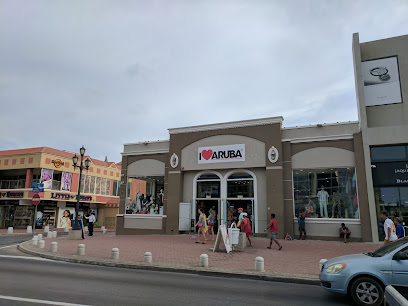
Renaissance Mall
Experience the vibrant shopping scene at Renaissance Mall in Aruba, where local culture meets international brands in a stunning Caribbean setting.
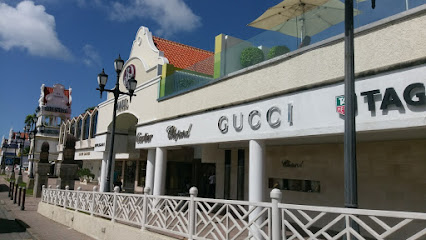
Local Store Aruba
Discover Local Store Aruba: a vibrant bar and restaurant offering a delightful blend of local flavors and refreshing drinks in a tropical paradise.
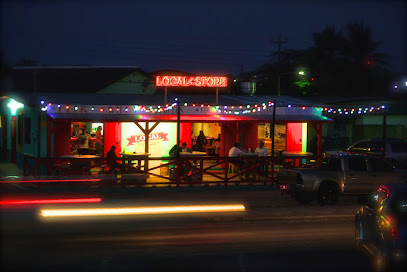
D Shop Aruba
Discover unique fashion and vibrant clothing styles at D Shop Aruba, the ultimate shopping destination in Oranjestad.
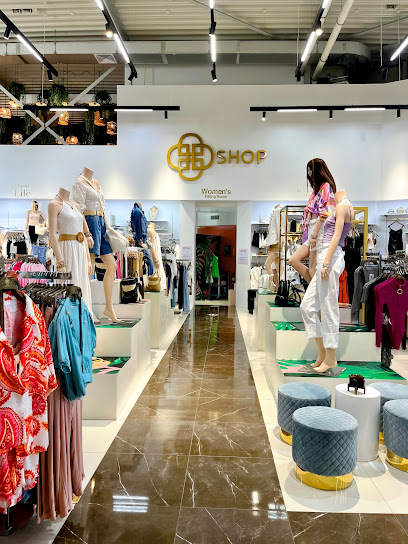
Super Shopping
Explore Super Shopping in Oranjestad, Aruba for an unparalleled retail experience, featuring clothing, electronics, furniture, and more!
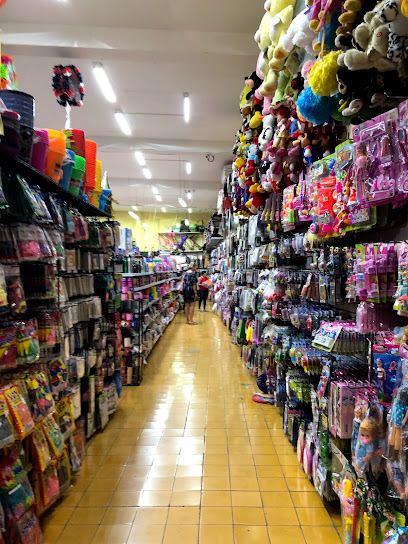
Style Aruba .com (Appt. Only! Book Online Or Call)
Explore Style Aruba, your ultimate destination for unique gifts, beachwear, and jewelry in Oranjestad, capturing the essence of the island.
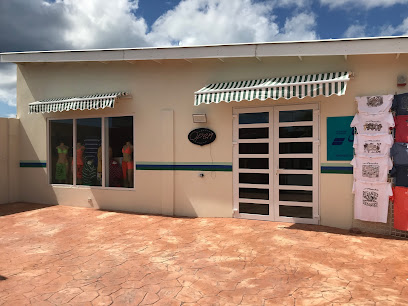
Bo Wah Supermarket
Explore the vibrant flavors of Asia at Bo Wah Supermarket in Oranjestad, Aruba—a shopping experience filled with unique culinary treasures.
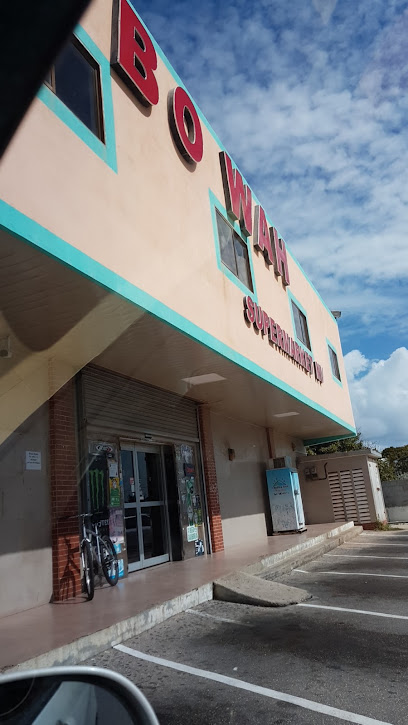
Melz Fashion
Discover the essence of Aruba's vibrant fashion at Melz Fashion, your ultimate destination for stylish clothing and accessories.
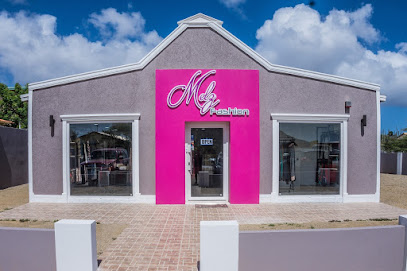
I Love Aruba Store II
Discover unique souvenirs and exquisite jewelry at I Love Aruba Store II, your go-to shop for memorable gifts in Palm Beach, Aruba.
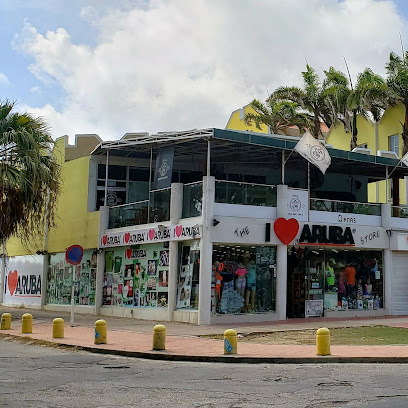
I Love Aruba Store I
Explore the vibrant I Love Aruba Store I for unique souvenirs and exquisite jewelry that embody the island's charm and culture.
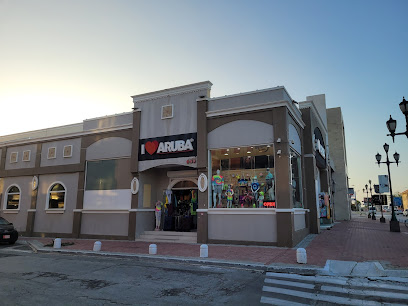
La & Lu Fashion
Explore La & Lu Fashion, your go-to women's clothing store in Aruba for stylish beachwear, chic outfits, and unique accessories that embody island elegance.
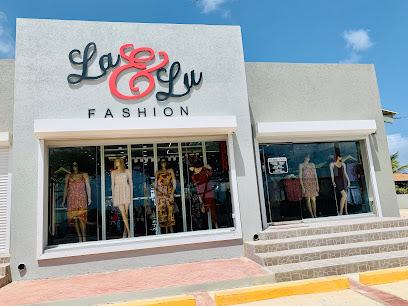
Nature's Discount Seroe Blanco Aruba
Explore Nature's Discount in Aruba for premium health foods, vitamins, and fitness nutrition to support your wellness journey.
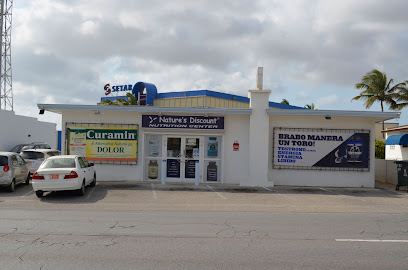
Pop-Up Store Aruba
Explore Pop-Up Store Aruba for unbeatable fashion finds, vibrant styles, and amazing deals in the heart of Oranjestad.
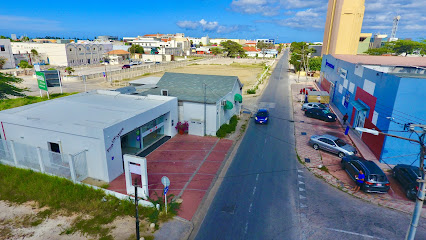
Tangerine Handmade Aruba
Explore the charm of Tangerine Handmade Aruba, where unique handcrafted handbags and accessories celebrate local artistry and vibrant island culture.
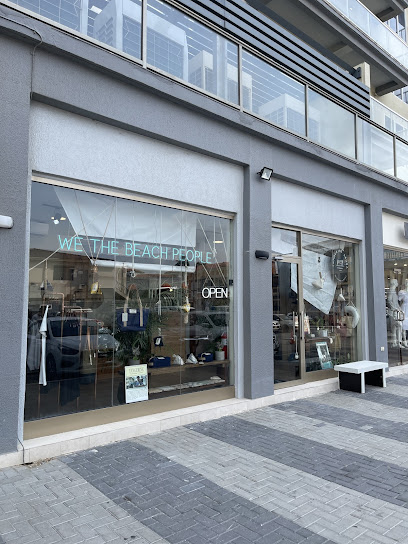
Essential bars & hidden hideouts
Bugaloe
Discover Bugaloe, Aruba's premier grill and bar, where delicious cuisine meets stunning ocean views for an unforgettable dining experience.
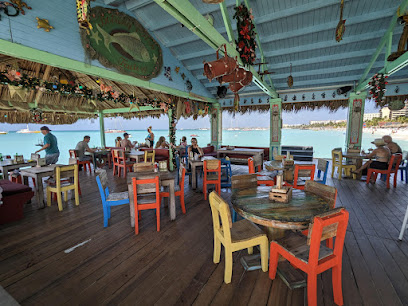
Coco Loco Beach Bar
Discover the vibrant atmosphere of Coco Loco Beach Bar in Aruba, where delicious grills and tropical cocktails meet stunning ocean views.
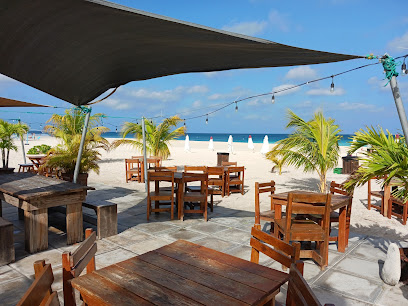
Reflexions Beach Bar & Restaurant Aruba
Experience the vibrant flavors and nightlife of Aruba at Reflexions Beach Bar & Restaurant, where ocean views and Caribbean cuisine await.
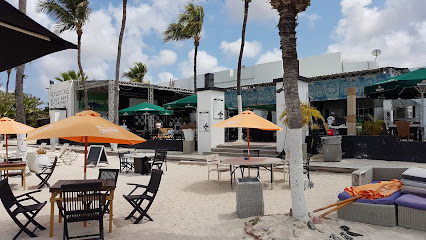
Surfside Beach Bar
Discover Surfside Beach Bar, a vibrant beachside retreat in Aruba, perfect for cocktails, local bites, and unforgettable ocean views.
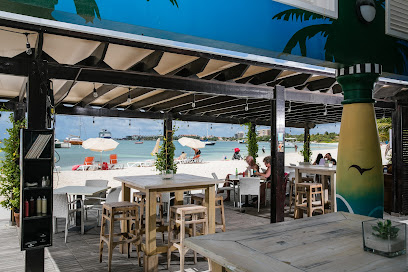
McDonald's Seroe Blanco
Discover the familiar flavors of McDonald's at Seroe Blanco, a fast-food haven in the heart of Aruba, blending global favorites with local charm.
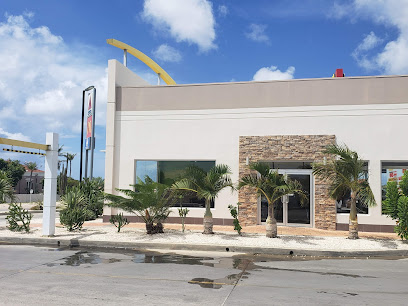
Charlie's Bar and Restaurant
Experience the vibrant flavors and welcoming atmosphere at Charlie's Bar and Restaurant in San Nicolas, Aruba, where locals and tourists come together.
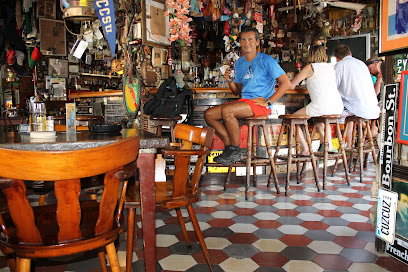
Rum Reef
Discover the flavors of Aruba at Rum Reef, a delightful grill restaurant by Baby Beach, offering fresh seafood and breathtaking ocean views.
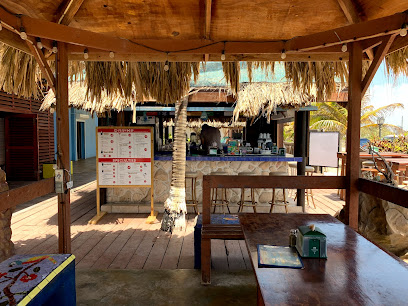
The Sopranos Piano Bar
Experience Aruba's vibrant nightlife at The Sopranos Piano Bar, where live music, cigars, and cocktails create unforgettable memories.
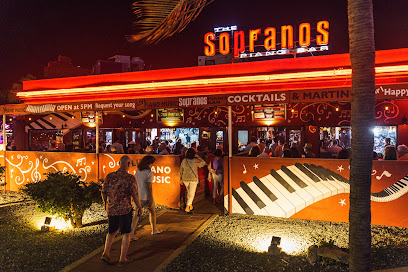
Café Chaos
Experience the vibrant nightlife of Aruba at Café Chaos, the go-to bar for great drinks and a lively atmosphere in Oranjestad.
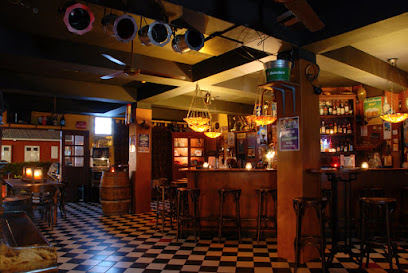
On The Rocks Cafe
Discover the flavors of Aruba at On The Rocks Cafe, a grill restaurant offering delightful dishes and a vibrant atmosphere in Oranjestad.
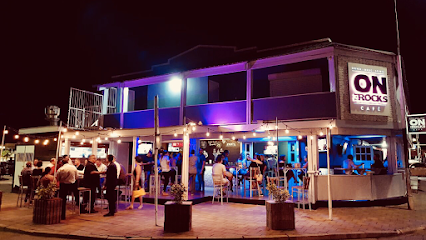
5 O clock somewhere bar
Experience the vibrant atmosphere and tropical flavors at 5 O'Clock Somewhere Bar, the ultimate destination for relaxation and fun in Aruba.
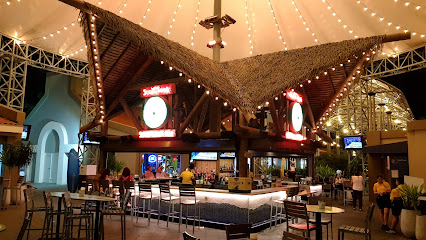
Ocean View Bar
Discover the charm of Ocean View Bar, where refreshing cocktails and stunning ocean views create the perfect tropical escape in Aruba.
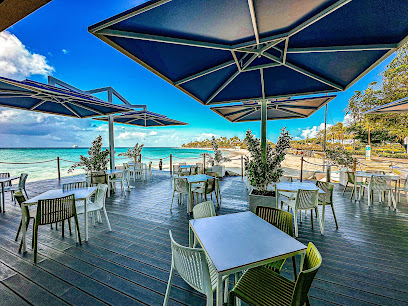
Kalibra Bar
Experience the vibrant nightlife of Aruba at Kalibra Bar, where expertly crafted cocktails and a lively atmosphere await you.
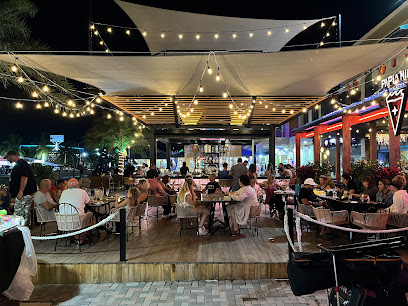
U-Wanna-Beer
Experience the vibrant beer culture of Aruba at U-Wanna-Beer, where local brews and a lively atmosphere await every visitor.
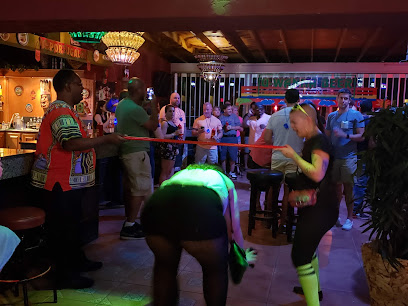
Local Phrases
-
- HelloBon dia
[bon dee-ah] - GoodbyeAyo
[ah-yo] - YesSi
[see] - NoNo
[no] - Please/You're welcomePor fabor
[por fa-bor] - Thank youDanki
[dahn-kee] - Excuse me/SorryPardon
[par-don] - How are you?Con ta bai?
[kon ta by] - Fine. And you?Bon. I bo?
[bon. ee bo] - Do you speak English?Bo ta papia Ingles?
[bo ta pa-pee-ah een-gles] - I don't understandMi no ta comprende
[mee no ta kom-prehn-deh]
- HelloBon dia
-
- I'd like to see the menu, pleaseMi kier mira e menu, por fabor
[mee kee-er mee-rah eh meh-noo por fa-bor] - I don't eat meatMi no kome karni
[mee no ko-meh kar-nee] - Cheers!Salud!
[sah-lood] - I would like to pay, pleaseMi kier paga, por fabor
[mee kee-er pah-gah por fa-bor]
- I'd like to see the menu, pleaseMi kier mira e menu, por fabor
-
- Help!Yudami!
[yoo-dah-mee] - Go away!Bay for
[bahy for] - Call the Police!Yama polis!
[yah-mah po-lees] - Call a doctor!Yama un dokter!
[yah-mah oon dok-ter] - I'm lostMi a perde mi mes
[mee ah per-deh mee mes] - I'm illMi ta malu
[mee tah mah-loo]
- Help!Yudami!
-
- I'd like to buy...Mi kier cumpra...
[mee kee-er koom-prah] - I'm just lookingMi ta mira solamente
[mee tah mee-rah so-la-men-teh] - How much is it?Cuanto ta costa esaki?
[kwan-to tah kos-tah eh-sa-kee] - That's too expensiveEsaki ta muchu caro
[eh-sa-kee tah moo-choo ka-ro] - Can you lower the price?Bo por baha e prijs?
[bo por ba-ha eh prijs]
- I'd like to buy...Mi kier cumpra...
-
- What time is it?Kuantu ora ta?
[kwan-too o-rah tah] - It's one o'clockTa un ora
[tah oon o-rah] - Half past (10)Mitad di dies
[mee-tah dee dees] - MorningMadruga
[mah-droo-gah] - AfternoonAtardi
[ah-tar-dee] - EveningAnochi
[ah-no-chee] - YesterdayAyera
[ah-yeh-rah] - TodayAwe
[ah-weh] - TomorrowMañana
[mah-nyah-nah] - 1Uno
[oo-no] - 2Dos
[dohs] - 3Tres
[trehs] - 4Cuater
[kwa-ter] - 5Cinco
[seen-koh] - 6Seis
[says] - 7Siete
[syeh-teh] - 8Ocho
[oh-choh] - 9Nuebe
[nweh-beh] - 10Dies
[dees]
- What time is it?Kuantu ora ta?
-
- Where's a/the...?Unda ta e...?
[oon-dah tah eh] - What's the address?Kico ta e adres?
[kee-ko tah eh ah-dres] - Can you show me (on the map)?Bo por mustra mi (riba e mapa)?
[bo por moos-trah mee ree-bah eh mah-pah] - When's the next (bus)?Con ta e siguiente (bus)?
[kon tah eh see-gwie-yen-teh boos] - A ticket (to ....)Un ticket (pa ....)
[oon tee-ket pah]
- Where's a/the...?Unda ta e...?
History of Sero Blanco
-
Long before the European colonization, the area now known as Sero Blanco was inhabited by the Caquetio people, a branch of the Arawak tribe. They were known for their farming and fishing skills and lived in harmony with the natural environment. Evidence of their presence can still be found in the form of petroglyphs and archaeological sites scattered throughout the region.
-
In 1499, Spanish explorers, led by Alonso de Ojeda, arrived in Aruba and claimed the island for the Spanish Crown. The Spanish colonizers established settlements, and Sero Blanco became a part of their new territory. The indigenous Caquetio people were subjected to forced labor, and many were taken to Hispaniola as slaves.
-
In 1636, Aruba was captured by the Dutch West India Company. The Dutch established a fort and focused on the island's strategic importance rather than its agricultural potential. Sero Blanco's landscape saw the construction of military installations and trade posts, which facilitated the island's role in regional trade.
-
The discovery of gold in Aruba in the 19th century brought a significant influx of fortune-seekers to the island, including Sero Blanco. The area saw the establishment of gold mines, and the local economy experienced a boom. Remnants of this era can still be seen in the form of abandoned gold mining equipment and structures.
-
In the early 20th century, Aruba became one of the world's largest producers of aloe vera. Sero Blanco played a crucial role in this industry, with vast plantations dedicated to cultivating the plant. The aloe vera industry not only boosted the local economy but also shaped the cultural landscape, as many families were involved in its production.
-
During World War II, Aruba's strategic location and oil refinery became critical to the Allied war effort. The Lago Oil & Transport Company, located near Sero Blanco, was one of the largest refineries in the world at the time. The refinery provided fuel for Allied forces, making it a target for German submarines. This period saw increased military presence and fortifications in the area.
-
In the latter half of the 20th century, Aruba transitioned from an economy based on oil and agriculture to one focused on tourism. Sero Blanco saw significant development, with the construction of hotels, resorts, and other tourist infrastructure. The area's rich history and cultural heritage have become key attractions for visitors from around the world.
Sero Blanco Essentials
-
Sero Blanco is located in the capital city of Oranjestad, Aruba. The nearest airport is Queen Beatrix International Airport (AUA), which is approximately 5 kilometers from Sero Blanco. Taxis and rental cars are available at the airport for a convenient transfer. Public buses operated by Arubus also connect the airport to various parts of Oranjestad, including Sero Blanco.
-
Sero Blanco is well-connected by public transportation, with regular bus services provided by Arubus. Taxis are also readily available and can be hailed on the street or booked via phone. For those looking to explore the area more independently, car rentals are a popular option. The neighborhood is relatively compact, making it easy to explore on foot or by bicycle.
-
The official currency in Aruba is the Aruban Florin (AWG), but U.S. dollars are widely accepted. Credit cards are commonly used in hotels, restaurants, and larger stores. It's advisable to carry some cash for smaller establishments and local markets. ATMs are widely available in Oranjestad, including in Sero Blanco.
-
Sero Blanco is generally safe for tourists, but it's important to take standard precautions. Avoid walking alone at night in poorly lit areas and keep your belongings secure in crowded places. While Oranjestad has a low crime rate, be cautious of pickpocketing in busy tourist spots. There are no specific high-crime areas targeting tourists in Sero Blanco.
-
In case of emergency, dial 911 for police, fire, or medical assistance. The nearest hospital is Dr. Horacio E. Oduber Hospital, located about 3 kilometers from Sero Blanco. Pharmacies are available throughout Oranjestad for minor health issues. It's recommended to have travel insurance that covers medical emergencies.
-
Fashion: Do dress comfortably and casually, but avoid overly revealing clothing, especially when visiting religious sites. Religion: Do respect local customs; when visiting churches, modest attire is appreciated. Public Transport: Do be polite and offer your seat to elderly passengers. Don't eat or drink on public transport. Greetings: Do greet people with a smile and a handshake. A friendly 'Bon dia' (Good morning) is always appreciated. Eating & Drinking: Do try local dishes like Keshi Yena and seafood. Don't refuse hospitality, as it is considered impolite.
-
To experience Sero Blanco like a local, visit the neighborhood markets where you can purchase fresh produce and local crafts. Engage with residents who are known for their friendliness and willingness to share stories about Aruba's history and culture. Don't miss the opportunity to explore local eateries and try traditional Aruban dishes. For a unique experience, take a walk along the scenic trails and enjoy the natural beauty of the area.
Trending Landmark in Sero Blanco
-
California Lighthouse
-
MooMba Beach Bar & Restaurant
-
Casibari Rock Formations
-
Arikok National Park
-
Queen Beatrix International Airport
-
Butterfly Farm
-
Alto Vista Chapel
-
Passions On The Beach
-
Faro Blanco Restaurant
-
Bushiribana Ruins
-
Royal Plaza Mall
-
Bushiribana Gold Smelter
-
The Old Cunucu House Aruba
-
Flamingo Beach
-
Amsterdam Manor Beach Resort Aruba
Nearby Cities to Sero Blanco
-
Things To Do in Tanki Leendert
-
Things To Do in Oranjestad
-
Things To Do in Paradera
-
Things To Do in Palm Beach
-
Things To Do in Noord
-
Things To Do in Santa Cruz
-
Things To Do in Pos Chiquito
-
Things To Do in Savaneta
-
Things To Do in San Nicolas
-
Things To Do in Sabana Westpunt
-
Things To Do in Westpunt
-
Things To Do in Soto
-
Things To Do in Barber
-
Things To Do in Sint Michiel
-
Things To Do in Julianadorp













